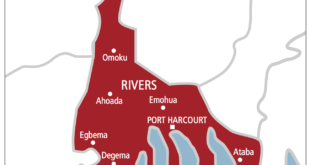The National Commission for Persons with Disabilities (NCPWD) revealed that 75 percent of students with disabilities in Nigerian universities experience stigma, discrimination or social exclusion.
In Nigerian universities, the pursuit of knowledge and academic excellence is often hampered by a more insidious challenge: the systematic marginalization of students with disabilities. Despite efforts to promote inclusivity, students with disabilities continue to face significant barriers that threaten their right to education. From dilapidated infrastructure to inadequate support services, the barriers are manifold.
Student Experience
Muhyideen Adebayo, a Computer Science student, University of Ibadan who has visual impairment said, “During lectures, I cannot see what is written on the board or what is projected from the front row seats. I rely on my friends or use my phone camera as a magnifying glass.
“There is also the issue of lighting in lecture halls. The level of lighting that is considered appropriate (even with artificial lighting) is often not enough for me. I usually use a flashlight to help, even during exams,” he said.
He added that his interests and field of study also added to the dynamics. He heard people say to him, “People like you should study special education.
“The government should help support students with disabilities by providing assistive technology to ensure equal access to education, offering scholarships to ease the financial burden associated with disability education, and training lecturers to create an inclusive learning environment,” Muhyideen urged.
Musa Baba Aliyu Yusuf, a 300 level veterinary student, Usmanu Danfodiyo University with a physical disability told Ripples Nigeria that “for someone with a physical disability, it is a constant source of stress. I often feel sad and hopeless before class, knowing that I have to climb the stairs again. It is sad that the university does not seem to take into account the needs of students with disabilities in its design and planning,” he lamented.
Inadequate infrastructure and facilities
NCPWD 2023 report finds that 85% of schools in Nigeria are inaccessible to students with disabilities
Students with physical disabilities must navigate treacherous terrain, dealing with stairs, uneven sidewalks, and inaccessible facilities. Those with visual impairments struggle to access materials, relying on makeshift solutions or assistance from peers.
READ ALSO: FEATURE: Graduates continue to increase every year, job opportunities are getting thinner, here’s one way to overcome it
Meanwhile, students with hearing loss face isolation, unable to fully participate in lectures or discussions. Learning disabilities and mental health issues often go undiagnosed or unsupported, leaving students languishing in silence.
Poorly trained staff
A search of the Disability Rights Advocacy Centre showed that 80% of university staff in Nigeria had not received training on disability awareness, support or inclusive education.
Lack of trained staff is a significant barrier to providing effective support for students with disabilities in educational institutions. Despite good intentions, untrained staff can inadvertently create a hostile learning environment, leading to poor academic outcomes, frustration and marginalization.
Experts provide input
Prof. Halimah Sarkinfada, an expert on disability inclusion, acknowledged that people with disabilities often face challenges in society, having difficulty accessing important aspects of life such as education, employment, social events, and basic facilities. Despite inclusive policies aimed at increasing enrollment, they are often placed in special schools rather than integrated into the general education system.
He noted that it was very important to absorb them into normal schools, which would enable them to socialize and recognize themselves as valuable members of society, rather than feeling alienated and marginalized.
“Individuals with physical disabilities often face barriers in accessing essential academic facilities, including classrooms, faculty offices, and exam rooms, due to a lack of wheelchair-friendly infrastructure. In addition, the lack of accommodations for students with sensory impairments, such as braille or tactile materials for the blind, sign language interpreters or audio descriptions for the deaf, and alternative communication methods for those who cannot speak, hinders their ability to acquire knowledge and fully participate in academic life.
“The government must provide the necessary facilities for universities to implement inclusive policies effectively, ensuring that all facilities available in special schools are also accessible in higher education institutions.
“This will enable students with disabilities to move from remote education to an inclusive learning environment, thereby encouraging better interaction and understanding. By implementing inclusive policies and providing supportive infrastructure, universities can create a more conducive and harm-free environment, and promote equal opportunities and empowerment for people with disabilities,” he added.
By: Hamid Fatimah Omotayo
FEATURE post: Students living with disabilities left to suffer appeared first on Latest Nigeria News | Headlines from Ripples Nigeria.
 JamzNG Latest News, Gist, Entertainment in Nigeria
JamzNG Latest News, Gist, Entertainment in Nigeria









